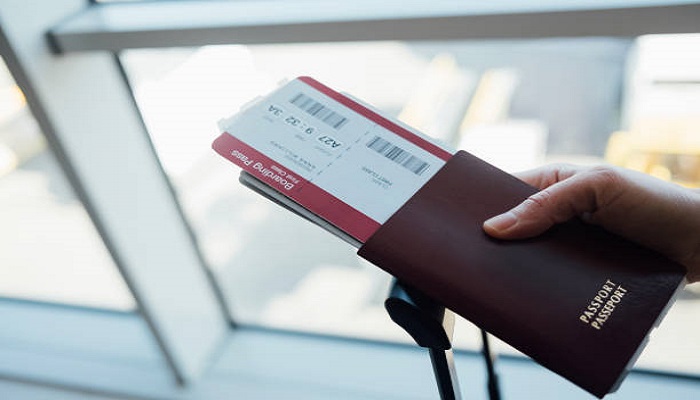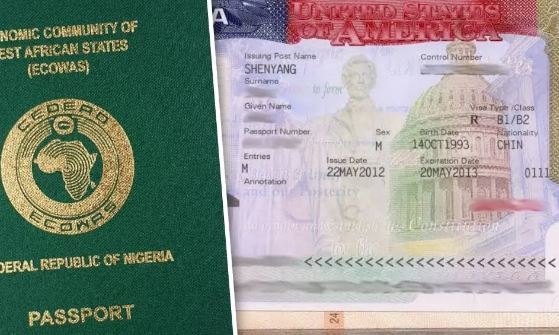Looking to study in Australia but need to know what the visa requirements are? Have no fear; we have got you covered! In this article, we will outline everything you need to know about Australia student visa requirements for Nigerian citizens.
Australia is one of the most popular countries to study in and has a wide variety of courses and programs available for Nigerian students.
According to the Department of Home Affairs website, over 400,000 students come to Australia annually on various student visas. To be eligible to study in Australia, you will need a student visa, specifically the Student visa (subclass 500).
Table of Contents
- 1 About Australia Student visa (subclass 500)
- 2 Australia Student Visa Requirements for Nigerians
- 2.1 #1. Admission or Acceptance Letter
- 2.2 #2. Confirmation of Enrolment (CoE)
- 2.3 #3. English Proficiency Test Result
- 2.4 #4. GTE Requirement
- 2.5 #5. Proof of Financial Ability
- 2.6 #6. Transcripts, Academic Certificates, and Resume
- 2.7 #7. Statement of Purpose
- 2.8 #8. Overseas Student Health Cover (OSHC)
- 2.9 #9. Health Requirement
- 2.10 #10. Character Requirement
- 3 How much is a Student visa from Nigeria to Australia?
- 4 Processing Time for Australian Student Visa for Nigerians
About Australia Student visa (subclass 500)
The Student visa (subclass 500) permits you to live, work, and study in Australia for a period of up to five years, depending on your degree.
This visa typically allows you to work a maximum of 40 hours per fortnight during term time and an unrestricted number of hours during study holidays. Nonetheless, the Australian Government is temporarily permitting students in all sectors to work more than 40 hours a fortnight during term time.
Currently, students can begin working as soon as they arrive in Australia rather than waiting until their study begins.
In addition, there are also different types of student visas available under Subclass 500, depending on your level of education.
The classes for an Australian student visa are as follows:
- Subclass 571 – Schools
- Subclass 570 – Independent ELICOS
- Subclass 573 – Advanced Education Sector Visa
- Subclass 574 – Postgraduate Research Sector Visa
Related Reads:
| Best Scholarships to Study in Australia | Cheapest Universities in Australia | Top Australian University Agents in Nigeria |
Academic Entry Requirements for Nigerian students to study in Australia
Aside from the Student Visa (subclass 500), another important thing to note is the academic entry requirements. This is essential for Nigerian students looking to apply to a college or university in Australia.
As a general rule, you are expected to read through the course entry requirements on your preferred chosen university’s website carefully and contact them directly if you need any further information.
Below is a list of entry requirements for Nigerian students to study in Australia:
English language proficiency requirements
You must demonstrate your English proficiency by taking an English language proficiency test such as IELTS, TOEFL, or PTE Academic. The minimum score varies depending on the level of study, course, and institution you are applying to, but generally, a minimum overall score of 6.5 in IELTS, 79 in TOEFL iBT, or 58 in PTE Academic is required.
School requirements
In addition, you must meet the academic requirements for the course and institution they are applying to. This typically includes having completed secondary school or an equivalent qualification such as a high school diploma and having achieved the required grades in relevant subjects. Some courses may also require additional prerequisites or prior learning.
Provide certified copies of academic transcripts and certificates.
As a Nigerian student, you must also provide certified copies of your academic transcripts and certificates from your previous academic institutions.
Meet any additional requirements.
Some courses or institutions may have additional entry requirements, such as an interview, portfolio, or specific work experience.
Note: It is important to note that these requirements may vary depending on the institution and the course you are applying for. So, it is recommended that you check with your chosen institution for specific entry requirements and application procedures.
Australia Student Visa Requirements for Nigerians
Here is a breakdown of everything you need to apply for a student visa from Nigeria. You will require the following items:
- Admission or Acceptance Letter
- Confirmation of Enrolment (CoE)
- English Proficiency Test Result
- GTE Requirement
- Proof of Financial Ability
- Transcripts, Academic Certificates, and Resume
- Statement of Purpose
- Overseas Student Health Cover (OSHC)
- Health Requirement
- Character Requirement
#1. Admission or Acceptance Letter
You must have received an offer of admission acceptance letter from an Australian educational institution. This letter will specify the course of study and the conditions that must be met before enrolling.
Before accepting the Letter of Offer, thoroughly read it. It will include information about your course, enrollment requirements, and the fees required to pay if you accept the offer.
In addition, ensure you understand your rights, including refund provisions; if you do not begin or complete your course, the agreement will determine whether you will receive a refund.
Accept the Letter of Offer only if you agree with all its terms and keep a copy of the Letter of Offer. You will need this copy to understand your rights and to file a lawsuit against the institution.
#2. Confirmation of Enrolment (CoE)
After accepting the offer of admission, you will need to provide a Confirmation of Enrolment (CoE) from the institution. This official document confirms your enrolment in the course and serves as evidence that you have met the conditions of your offer.
You must attach a copy of this document with your visa application so that the Australian Embassy or Consulate knows you are enrolled in your declared course.
#3. English Proficiency Test Result
You must provide results from an English language test such as IELTS, TOEFL, or PTE to demonstrate your English proficiency. This certificate will prove to the Australian Embassy that you have the necessary English proficiency levels to succeed in your chosen program.
The required score will depend on the institution and the course of study. For further information, visit the Australian Department of Home Affairs website and check the school provider’s website for English language requirements.
#4. GTE Requirement
The Genuine Temporary Entrant (GTE) requirement is mandatory for all Nigerian students. It requires you to demonstrate that you genuinely intend to study in Australia and will return to your home country after completing your studies.
The Department of Home Affairs will consider the following factors before granting you a student visa:
- The situation in your home country, in this case, Nigeria.
- Possible situations in Australia for you.
- The worth of your chosen program.
- Your immigration background.
- You may also be asked to attend an interview at an Australian embassy or consulate.
#5. Proof of Financial Ability
You must demonstrate sufficient financial resources to support your studies in Australia. This may include proof of income, bank statements, or a sponsorship letter. But, if you are going to study on a scholarship, you must provide your scholarship letter.
Generally, this financial proof can be met in two ways:
First, provide bank statements as well as proof of grants or scholarships. This will demonstrate that you have enough money to cover your course costs and expenses, such as travel, course fees, and rent.
Provide documentation of your parent’s or partner’s yearly income, which must be AUD$62,222 (₦19,899,467) in the year preceding your application. If you bring family members, you must have an annual income of at least AUD72,592 (₦23,215,938).
#6. Transcripts, Academic Certificates, and Resume
You must provide certified copies of your academic transcripts, certificates, and resume. These documents will be used to assess your academic background and qualifications.
Academic certificates, such as WAEC and NECO, are required for the application procedure. These documents demonstrate that you have a strong academic background and understand what you will be taught when you begin your studies.
#7. Statement of Purpose
You may be required to submit a statement of purpose that outlines your academic and professional goals and explains why you have chosen to study in Australia. Basically, this letter should explain why you are studying in Australia, why you choose your university, and what your aims are.
#8. Overseas Student Health Cover (OSHC)
As a Nigerian student in Australia, you must have Overseas Student Health Cover (OSHC) for the duration of your stay in Australia. This insurance will cover your medical expenses while you are in the country.
OSHC will assist you in the following ways:
- While studying in Australia, you must pay for medical or hospital care.
- Most prescription medications are covered.
- In case of an emergency, it will provide you with ambulance coverage.
While organizing your health insurance, order an OSHC card to use at doctor appointments while in Australia.
#9. Health Requirement
You may be required to undergo a health examination to assess your fitness to study in Australia. The type of examination will depend on the length of your stay and the nature of your course of study.
#10. Character Requirement
Finally, you will need to provide police clearance certificates or other similar documentation to demonstrate that you have good character and have not been involved in any criminal activities.
How much is a Student visa from Nigeria to Australia?
The cost of a student visa from Nigeria to Australia depends on several factors, including the type of visa, the duration of stay, and other relevant factors.
As of September 2021, the base application fee for a student visa (subclass 500) was AUD $620 [₦196,536]. However, additional charges may apply depending on the individual circumstances of the applicant. For instance, if you have dependents (spouse or children) applying with you, additional fees may apply for each person.
It’s also worth noting that there may be other costs associated with obtaining a student visa, such as health checks, police certificates, and English language proficiency tests. These costs can vary depending on your individual circumstances.
We recommend checking the official website of the Australian Department of Home Affairs for the most up-to-date information on visa fees and other requirements.
Processing Time for Australian Student Visa for Nigerians
Depending on your application eligibility, the processing time for an Australia student visa application can range from 1 to 4 weeks. To avoid excessive delays, you should prepare all of the relevant documents before applying for the visa.
It is also advisable to check with the Australian Embassy or High Commission in Nigeria for the most recent information on student visa processing times. Based on the details of the visa application, they will be able to provide accurate information.
Conclusion
In conclusion, this article provides a comprehensive guide to the Australia student visa requirements for Nigerian Citizens, including academic qualifications, financial resources, health insurance, and English proficiency.
It’s important to note that the visa application process and requirements can change, so it’s suggested to check the official Australian government website for the most up-to-date information.
We hope this information helps. If you have any further questions, please don’t hesitate to ask.









